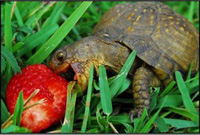Blog Granta.com
30 de outubro de 2012
Link para o original: http://www.granta.com/New-Writing/Rachel-Seiffert-on-Vanessa-Barbara
por Rachel Seiffert
Vanessa Barbara is a journalist, translator and writer. Her publications include O livro amarelo do terminal (2008), winner of the Jabuti Award, the novel O verão do Chibo(2008), co-written with Emilio Fraia, and the children’s book Endrigo, o escavador de umbigo (2011), illustrated by Andrés Sandoval. She recently published a translation of The Great Gatsby. Barbara also edits the literary website A Hortaliça and is a columnist for the newspaper Folha de S. Paulo. ‘Lettuce Nights’ (‘Noites de alface’) is an extract from her forthcoming novel. Here, as part of an ongoing series on the twenty authors from The Best of Young Brazilian Novelists issue – which was first published in Portuguese by Objetiva – Vanessa Barbara is introduced by previous Best of Young British Novelist, Rachel Seiffert.
A story that starts with a bereavement: already I’m drawn in. The real story is always in the aftermath, and here’s a young writer who not only understands that, but expresses it with tender humour too. So it’s the socks that miss Ada first; Otto notices them swollen in mourning, untended in the wash. The tone has been set, wry and gentle, even in the first paragraph, and we’ve been taken straight into that intimate, domestic space expressive of a long and contented marriage.
It’s a sad start, but there’s contentment for the reader here too: the particular satisfaction offered by a well-turned first chapter. Unhappily for Otto, his wife is now gone; happily for us, these are but the opening pages of a novel-in-progress, full of the promise of more to come, in good time, beyond this issue of Granta.
Otto and Ada, we are told, decided early on not to have children. Their life had to do with each other, and with those who lived around them. Inward-looking Otto took shelter behind his garrulous Ada; the kind of woman who would welcome a delivery boy into the living room and draw out his life story over coffee. Otto has his neighbours now, but he has his memories too – which should he choose? In this widower’s dilemma lies all the potential energy of a narrative ready to unfold.
Oh, and it has to do with cauliflowers too . . . – Rachel Seiffert, Best of Young British Novelist in 2003
Lettuce Nights
When Ada died, the wash hadn’t dried yet. The trousers’ elastic waistbands were still damp, socks swollen, T-shirts hanging the wrong way out. A rag was left soaking in the bucket. Rinsed recycling bins in the sink, the bed unmade, open biscuit packets lying on the couch. Ada had gone away without watering the plants. The household things were holding their breath and waiting. Since then, the house without Ada has been nothing but empty drawers.
Otto and Ada were married in 1958, just as the town was transitioning between mayors. They bought a yellow house and decided not to have children, no dogs or cats, not even a pet turtle. They spent almost fifty years together: cooking, assembling massive puzzles of European castles and playing ping-pong on the weekends, until arthritis set in and made the game impossible. In the end it was nearly impossible to tell the difference between their tone of voice, their laugh, their way of walking. Ada was thin with short hair and liked cauliflower. Otto was thin with short hair and liked cauliflower. They wandered up and down the hallways and took out the rubbish together. Ada dealt with the various household details and did most of the chores while Otto followed her around telling anticlimactic stories. They were such good friends that Ada’s death left a silence in the hallways of the yellow house.


